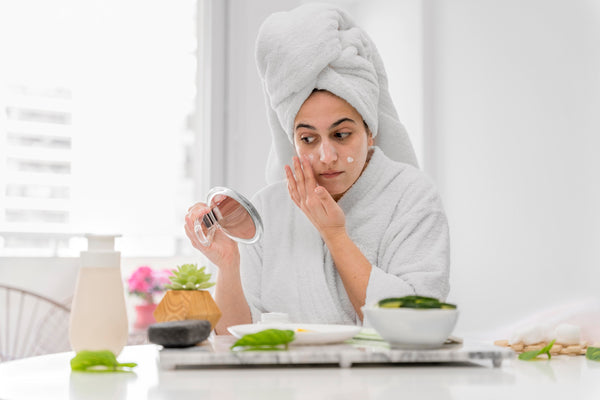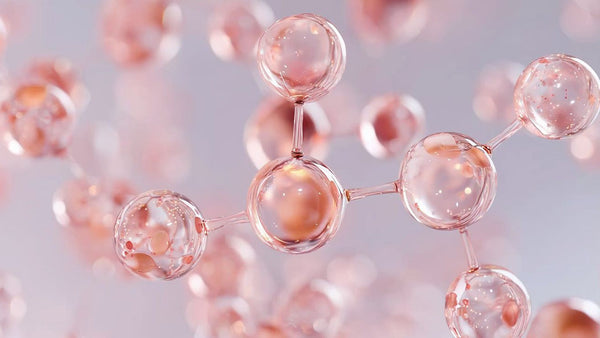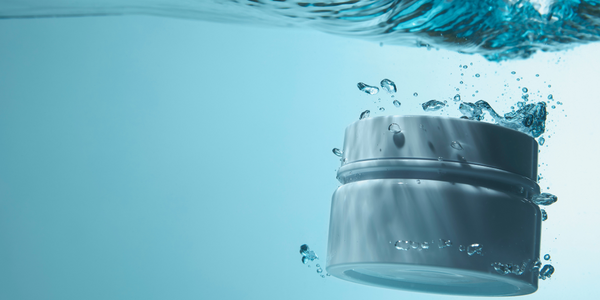Many of us have followed different treatments and solutions in the pursuit of mark-free skin. Stretch marks are a universal dermal problem experienced by both genders and all body types, with a study showing that 70.5% of the respondents had stretch marks in their families. [NIH] This genetic predisposition, along with the important role of collagen in skin recovery, has raised much curiosity in knowing how collagen supplementation can help counter this issue which is so prevalent.
What Causes Stretch Marks?
Stretch marks occur when the skin undergoes rapid changes, causing tears in the dermis – the middle layer of skin rich in collagen and elastin. Understanding collagen for skin is crucial here, as it's the primary protein responsible for maintaining skin structure and elasticity. [NIH] When our skin stretches quickly due to growth, weight changes, or pregnancy, the natural collagen fibers can break, leading to the formation of these distinctive marks.
Collagen's Multifaceted Role in Skin Health
Collagen's benefits for skin health are both extensive and scientifically validated. A key advantage lies in its ability to stimulate fibroblast activity, the specialized cells responsible for producing new collagen and elastin. These components are essential for preventing stretch marks and maintaining overall skin health. However, starting around age 25, natural collagen production declines by approximately 1% each year. [NIH] This gradual decrease reduces the skin's ability to retain structure and elasticity, making it more prone to stretch marks and other signs of aging. Regular collagen supplementation can help offset this decline by replenishing the building blocks needed for natural skin repair.
Another important factor is the role of Matrix Metalloproteinases (MMPs), enzymes that degrade collagen in the skin. Collagen supplementation can help regulate these enzymes, minimizing excessive collagen breakdown. This regulation plays a crucial role in maintaining skin integrity and potentially reducing the appearance of stretch marks.
It’s also worth noting that not all collagen supplements are created equal. Studies highlight that marine collagen offers superior bioavailability, absorbing 1.5 times more efficiently than bovine or porcine collagen. [Sciencedirect] This enhanced absorption makes marine collagen a particularly effective option for supporting skin repair and reducing the visibility of stretch marks.
Boosting Natural Collagen Production
Supporting collagen production involves more than simply taking supplements; it requires a holistic approach that integrates diet, lifestyle, and mindful care:
-
Vitamin C for Collagen Synthesis: Vitamin C is a crucial co-factor in collagen synthesis, helping stabilize and cross-link collagen molecules. Consuming vitamin C-rich foods like oranges, kiwis, strawberries, bell peppers, and guavas can significantly boost your body's ability to produce collagen naturally. This nutrient also combats free radicals, which can damage skin and degrade collagen. [NIH]
-
Protein-Rich Diet: Since collagen is a protein, consuming sufficient amounts of protein-rich foods like eggs, chicken, fish, legumes, and nuts provides the amino acids—such as glycine, proline, and hydroxyproline—necessary for collagen production.
-
Hydration and Skin Health: Proper hydration keeps skin plump and elastic, supporting the collagen matrix. Drinking plenty of water and consuming water-rich foods like cucumbers, watermelon, and leafy greens can enhance the skin’s overall resilience.
-
Quality Sleep for Repair: Deep sleep is when your body engages in repair and regeneration, including collagen synthesis. Poor sleep habits can accelerate collagen breakdown and skin aging, while adequate rest helps maintain its production.
-
Balanced Nutrition: A diet rich in antioxidants, zinc, and omega-3 fatty acids strengthens the skin barrier and supports collagen health. Foods like nuts, seeds, avocados, and fatty fish are excellent choices to round out your nutrition.
By combining these dietary and lifestyle strategies, you can amplify your body’s natural collagen production, fostering healthier, more resilient skin.
The Truth About Topical Collagen Products
While many cosmetic manufacturers market topical collagen products as miracle solutions for stretch marks, the science tells a different story. Collagen molecules are typically too large to penetrate the deeper layers of skin when applied topically. While these products might provide temporary moisturizing benefits, they rarely address the root cause of stretch marks or provide lasting improvements.
Conclusion
The secret to addressing stretch marks lies in understanding the science behind collagen and its role in skin health. While topical applications may provide temporary cosmetic improvements, the focus should be on supporting the body’s natural collagen production through the right supplements and lifestyle choices. Incorporating marine collagen supplements, nutrient-dense foods, and quality sleep can, over time, significantly enhance skin health and reduce the appearance of stretch marks.
Consistent collagen supplementation has been shown to improve dermal thickness, boosting the skin's resilience against physical stress. [Sciencedirect] This enhanced resilience can minimize the depth of existing stretch marks and help prevent new ones from developing.
It’s important to remember that skin regeneration is a gradual process that requires commitment and consistency. By aligning with your body’s natural protective and regenerative mechanisms, you can support and enhance your skin’s health and appearance effectively.



























 DOWNLOAD NOW
DOWNLOAD NOW
